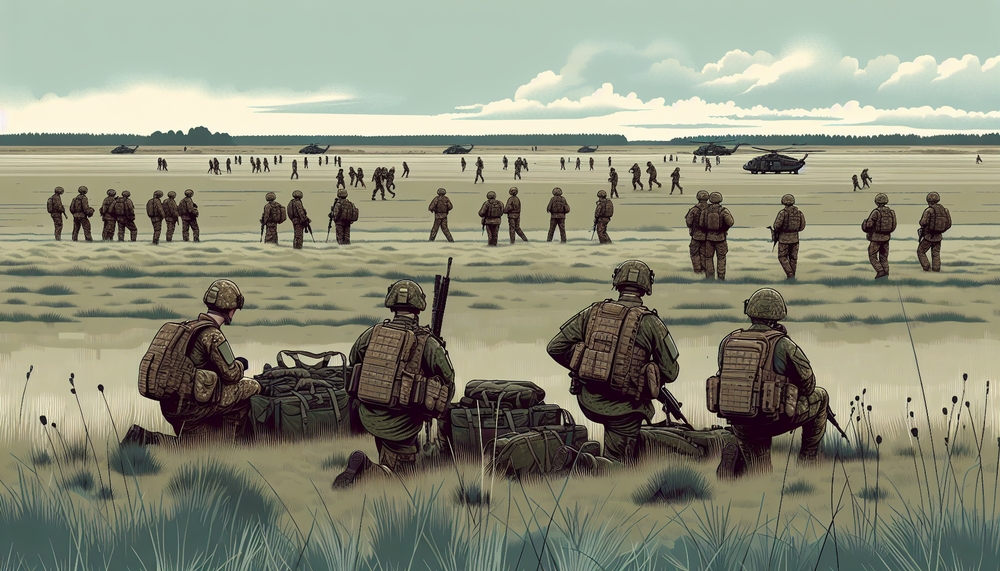Published
- 3 min read
Germany's Military Resurgence: A Game-Changer for Europe

Historical Context: From Cold War to Zeitenwende
Germany’s military history has traveled a particularly complex path since the Cold War. Emerging from two world conflicts, West Germany’s integration into NATO marked a significant shift towards collective defense while East Germany remained under Soviet influence. The reunification of Germany and the fall of the Iron Curtain ushered in the period of the ‘peace dividend’, a strategy characterized by minimized defense spending and reduced military presence. Yet, the Russian invasion of Ukraine in 2022 disrupted this tranquillity and forced Germany into a ‘Zeitenwende’, or turning point, initiating a seismic shift in their defense policy and overall military posture.
Unlocking Resources: Financial Strategies for Defense
In response to this upheaval, Germany devised financial strategies to fortify its defense capabilities. The removal of the constitutional debt brake underscored a determined shift in priorities, allowing for a defense budget increase to 3.5% of GDP. Central to these reforms is the establishment of a €100 billion fund aimed at modernizing the Bundeswehr. This move highlights the government’s commitment to ensure robust military capabilities amid evolving geopolitical challenges. Recent fiscal policies underpin these efforts, promising a reinforced and responsive military structure positioned to defend national and allied interests effectively.
Revamping the Bundeswehr: Addressing Structural Challenges
The path to reestablishing a formidable German military, however, is not without its hurdles. The Bundeswehr faces significant structural challenges. According to the Parliamentary Commissioner’s report, recruitment shortfalls, aging personnel, and infrastructural inadequacies remain pressing issues. Efforts to modernize aren’t just about upgrading weapons systems but also rejuvenating the workforce and reorganizing the establishment. Key areas include enhancing training, expanding recruitment campaigns, and investing in essential infrastructure upgrades to meet current and future demands effectively.
Public Support: Shifting Perceptions on Military Expansion
Public opinion in Germany regarding military expansion has historically been lukewarm given the nation’s checkered past. However, recent surveys reveal a considerable shift, with heightened support for increased defense spending and even a willingness to increase national debt if it means stronger security. This rise in public backing is critical, signaling a changing national psyche and an acceptance of the necessity for defense preparedness in a volatile European landscape. This transformation presents a pivotal opportunity for the German government to align public sentiment with military advancements.
Strategic Implications: Germany’s Role in European Security
Germany’s renewed military focus significantly impacts European security dynamics. Elevated defense policies strengthen NATO’s collective defense strategies and prepare Germany to effectively engage in future geopolitical threats. This evolution reinforces Germany as a pivotal ally, enhancing its commitments to NATO and bolstering its role in collective European defense initiatives. Brig. Gen. Hammerstein underscored Germany’s growing capacity and partner responsibilities, emphasizing that a stronger German military is integral to the broader security architecture of Europe.
Future Prospects: Germany’s Path Towards a Stronger Defense
Under the leadership of Chancellor Merz, Germany’s ambitious military agenda sets a forward-looking roadmap for strategic defense development. Potential areas of focus include re-evaluating conscription policies, continued infrastructure advancements, and enhanced international cooperation. These elements not only fortify Germany’s national defense but also position it as a key player in European stability and security. This new era of assertive military policy underscores Germany’s commitment to proactively shaping a balanced and secure European future.
